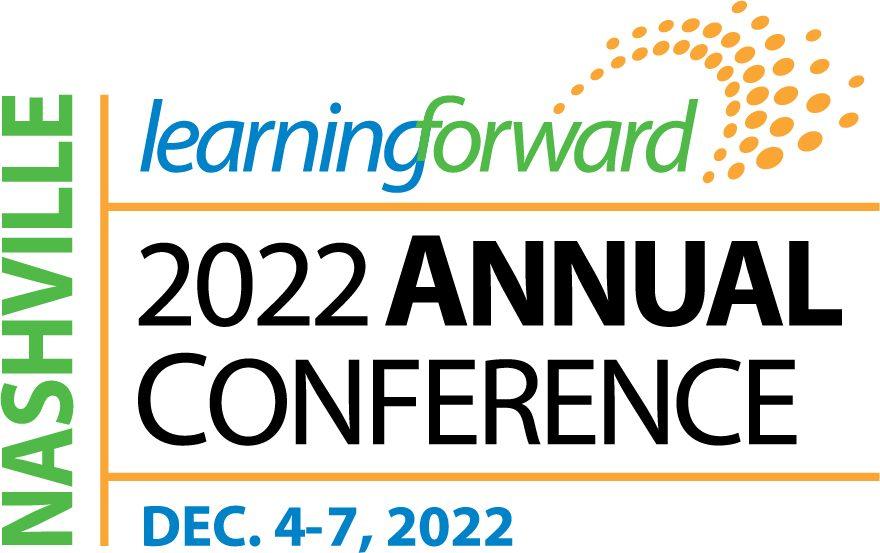The Collaborative Power of Teacher Teams
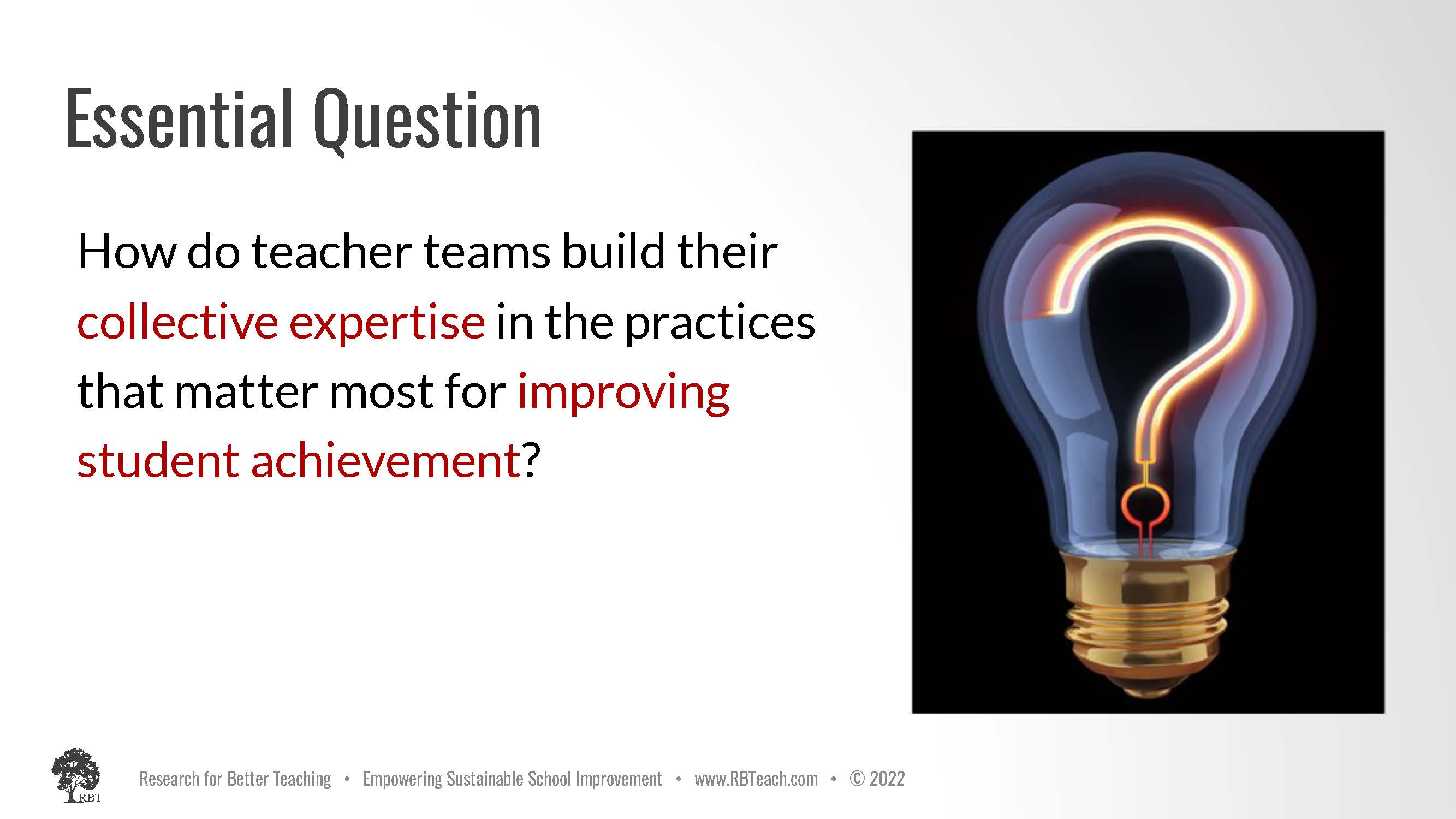
The Impact
One of the silver linings teachers reported coming from the pandemic was forming a deeper connection with colleagues. Teachers came together virtually to share tips, plan lessons, relate challenges, and just check in. Now that we are back in-person, it is important to continue this collaboration, but the same questions that existed pre-pandemic still remains: How do teacher teams use their time to build their collective expertise in the practices that matter most for improving student achievement and how do we maximize the chances that a fine professional development experience translates into practice?
All the right factors were in place at Fletcher Maynard Academy in Cambridge, MA last year, and this month’s video interview with school coaches Kelly Rowan and Patricia Duggan tells the story. Fletcher Maynard Academy is a PK-5 public school located in Cambridge, MA, serving 276 students, including 88% students of color and 77% students with high needs (students with disabilities, English language learners, and students from low-income households). The diversity of students’ learning needs is met with a multi-tiered system of support for both academic and social learning.
Guided by RBT Consultant Reena Freedman, the course instructor, and led by then Principal Maisha Rounds and the leadership team, this school achieved stunning results in student gains in both math and literacy by focusing on deep collaboration of teams in a new way.
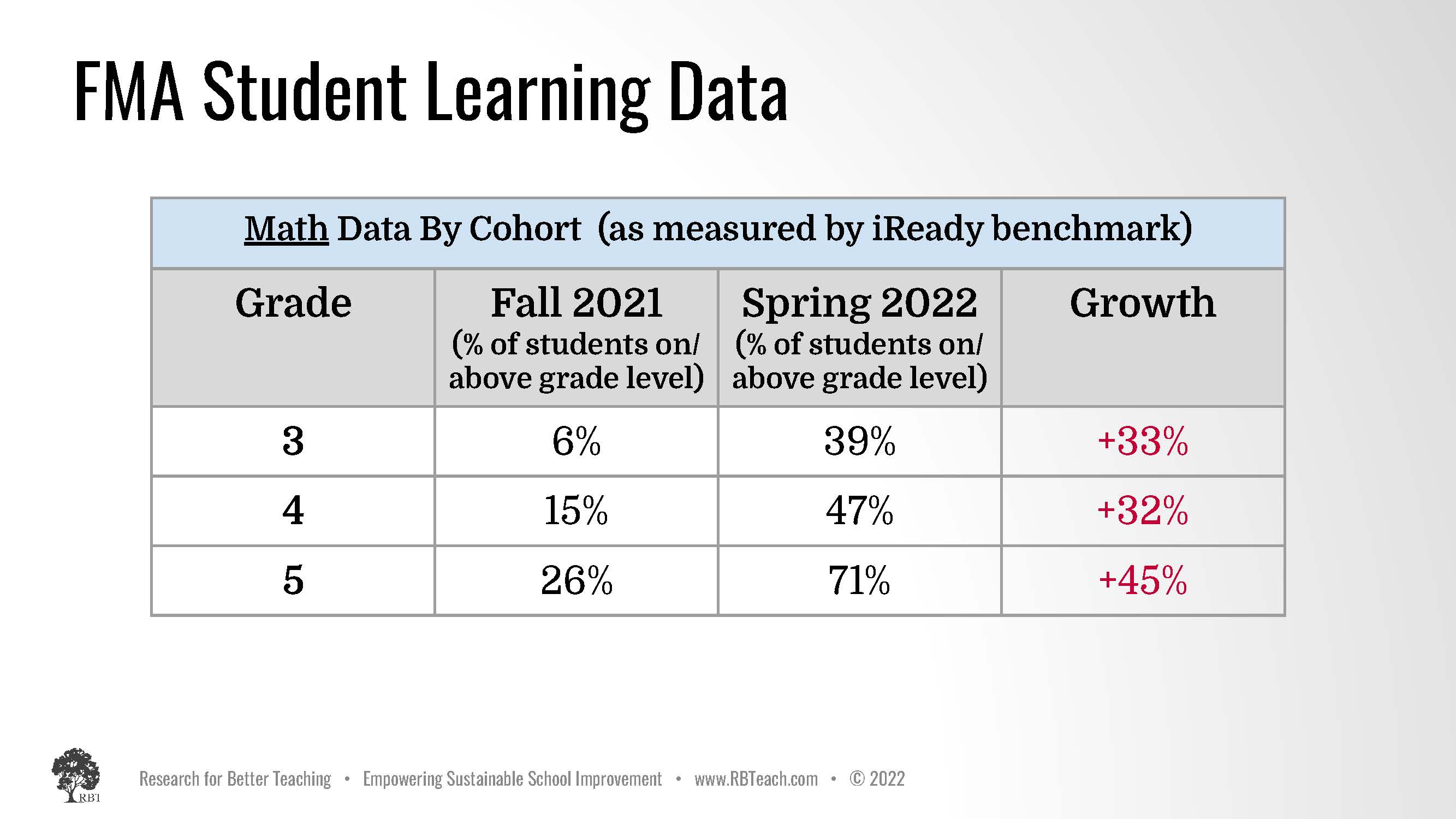
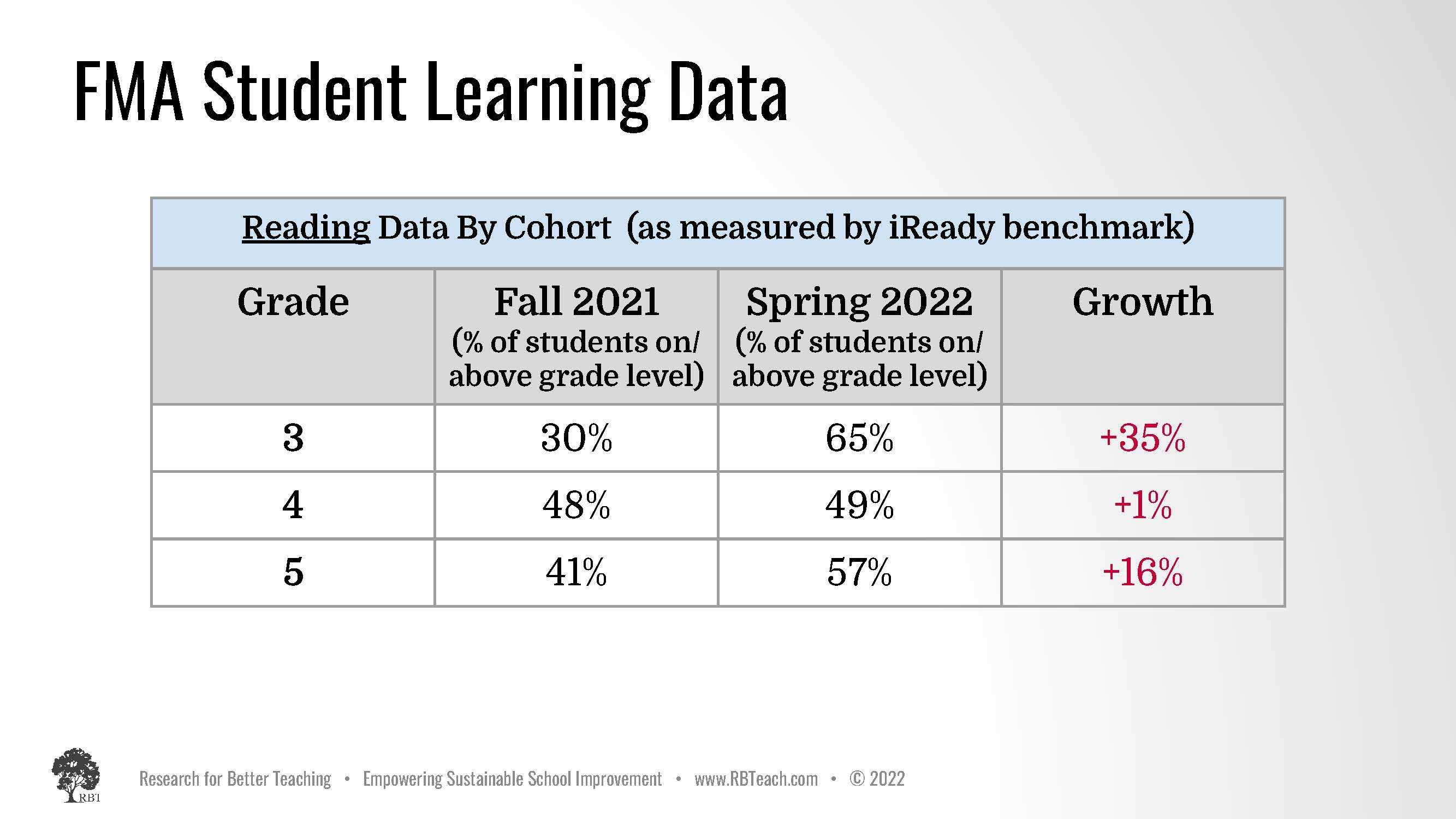
Two heads are better than one, not because either is infallible, but because they are unlikely to go wrong in the same direction. |
C.S. Lewis |
The Course
High Impact Teacher Teams (HITT) and its follow-up implementation structures develop teacher capacity to clarify the learning journey in lessons, infuse formative assessment throughout instruction, analyze student work frequently and in-depth, and provide meaningful feedback to students and a thorough re-teaching and extension cycle. Technical skills are surrounded by a huge array of tools for implementation that are available for use in a “choose your own adventure” way by the team members.
The most successful professional development programs add several indispensable elements to quality training. They are framed at the beginning with a particular tone, structured to ensure adoption of the new learning into the routines and mechanisms of school life, and most particularly their transfer into individual teacher practice. RBT's High Impact Teacher Teams (HITT) program at Fletcher-Maynard School in Cambridge accomplished this. It was no ordinary approach to analyzing data.
Fletcher Maynard MCAS Data - Grade 5 Math 2019-2022
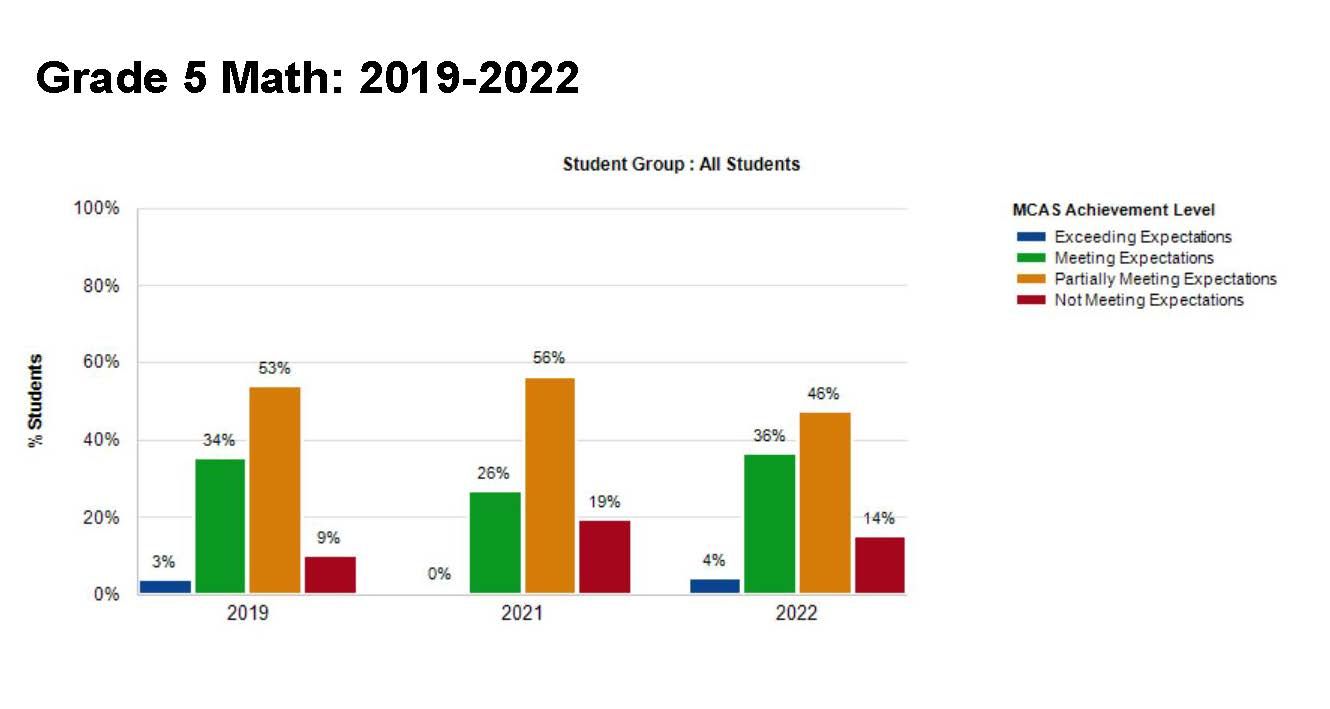
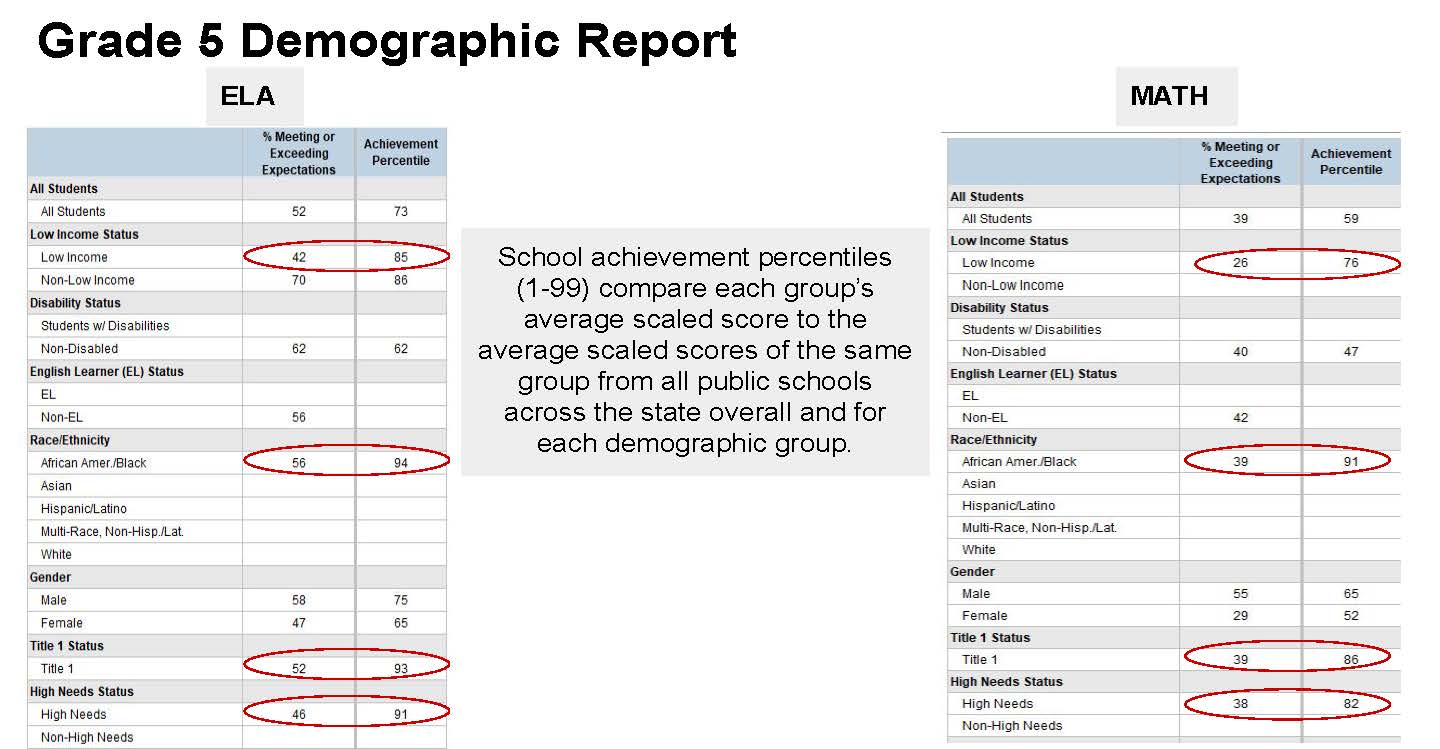
The HITT course gives you the resources to implement practices right away- it is a choose your own adventure playbook! |
Reena FreedmanRBT Consultant |
What the whole faculty undertook together was a master class in planning combined with the collegial spirit of Japanese Lesson Study, the tenacity of follow-through one finds when there is a commitment to equity and an authentic belief that all, really all, students can learn to proficiency. It was all of these by design and at once. The elements that combined for this success story were:
- Take on as a whole faculty
- Study and practice a comprehensive schema for planning and reflecting on the impact of lessons that becomes the focus of team time
- Set a tone of “we’re doing this” at the beginning from a trusted and credible leader who gives a compelling rationale for the practices
- Have an administrative team that immerses themselves as learners in the process and works with the team members at all the team meetings
- Ensure the focus of instructional coaches is the implementation of the model in cluster/team meetings and classrooms. The coaches also took on the role of moving each team leader to whatever was, for that person, the next step in leadership skill.
- Surround the whole enterprise with an ethos of “we can do this.”
Notebook Excerpts from the High Impact Teacher Teams Course
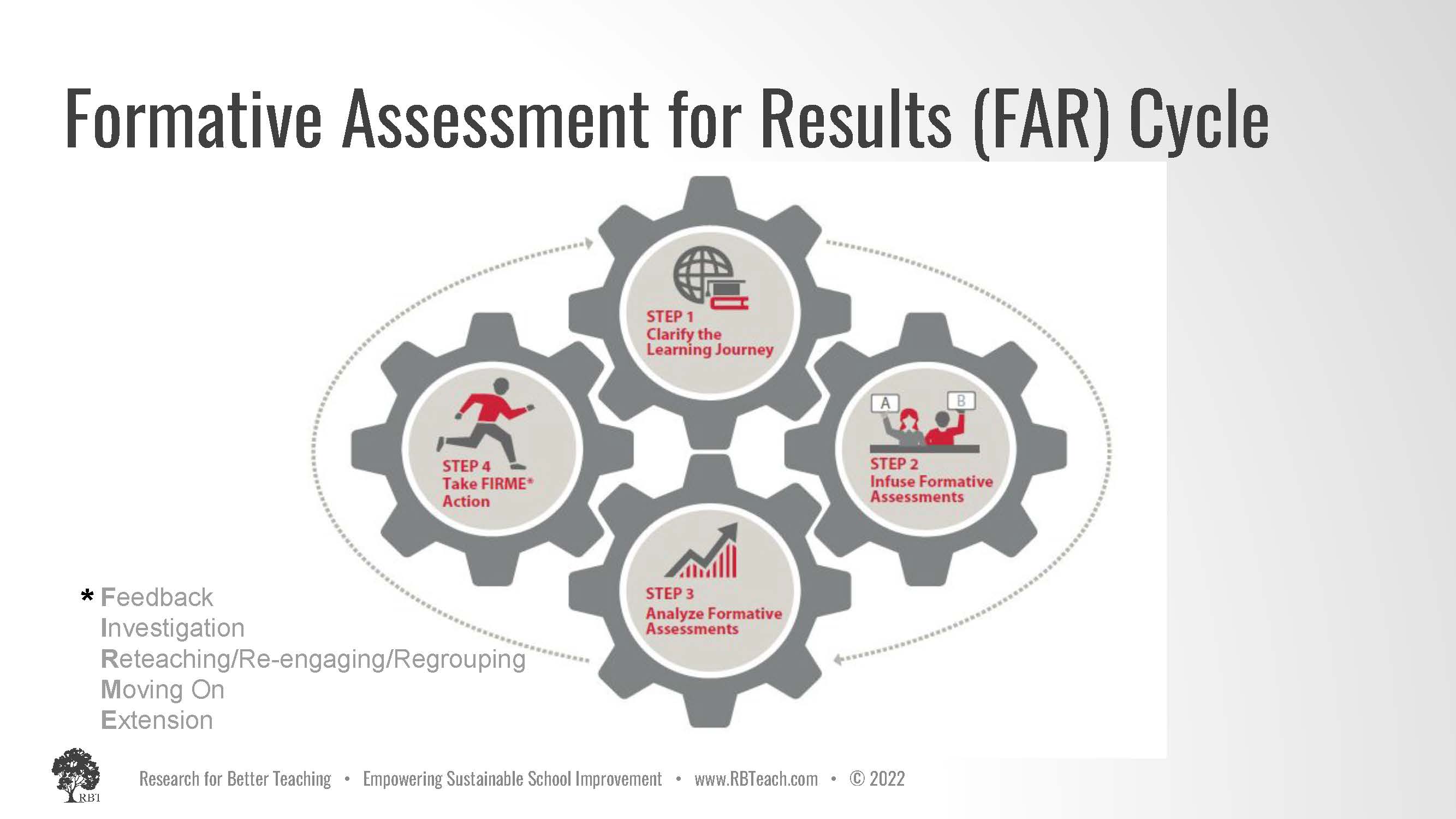
Reena, Tricia, and Kelly will be presenting at the upcoming Learning Forward conference on Monday, December 5, 2022.
